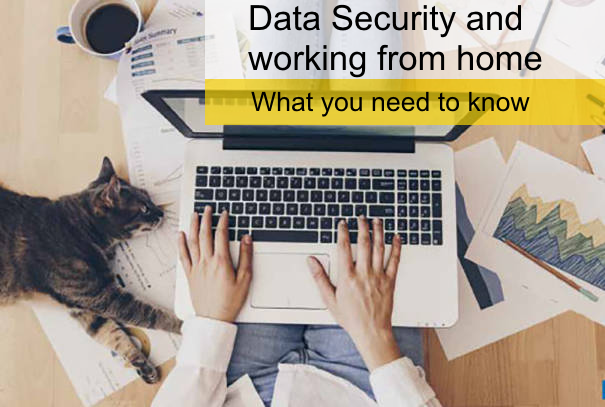Data security and working from home
Many of us are still working from home despite the Covid-19 lock down easing. When you used to work in the office (remember those days!) your IT support team took care of data security measures for you, but now that you’re working from home you may have to take a bit more care over data security. To make working from home more secure you should consider the following:
Use antivirus software
There’s no way around it, you just need to have it to be safe. Antivirus software is important to have on your personal computer, but its importance is even bigger if you are using your own computer for working. Prevent malware from compromising your work and your employer’s systems.
Make sure your system and programs are up to date
Programs and operating systems are updated regularly to prevent criminals from exploiting their weaknesses. Make sure your operating system is running the latest version. Enable automatic updates to make sure your systems are safe.
Secure your home network
Make sure you have your WiFi network encrypted. If your WiFi requires a password, then it’s a good start. If not, access your router settings to change this.
You also need to change your router’s default admin password. If your router is hacked, then an attacker could get access to your devices and everything you send through the router. The default passwords for routers are a weak link in their protection.
Ensure your privacy with a VPN
If you are using your own computer, get a VPN to secure your connection and encrypt your data. With a VPN your important data can’t be accessed by anyone as it passes along the Internet.
Be cautious when sharing your screen
During online meetings using Teams or Zoom, be cautious when sharing your screen. If possible, don’t leave any windows open that you don’t want to share. Accidents do happen, and sometimes you might share something that you didn’t mean to. While it can be awkward, it’s also a privacy issue. You might share content that is not meant to be viewed by others.
Beware of Covid-19 related scams
Internet criminals have widely exploited the Covid-19 outbreaks. It has been the topic of numerous phishing and scam campaigns. If you get emails with any suspicious links or attachments related to Covid-19, don’t open them. Better safe than sorry.
Don’t share personal information in messages or social media
Be careful about sharing any personal information on messages or emails. It could be just another case of phishing. The person asking for this information might not be who you think it is, so always ensure that the person who asked really did so before sending important personal information.
It’s also a risk to share pictures of your remote working station in social media. You might accidentally share important information while you do it. Same goes with using your webcam. With webcams you might also accidentally share too much about your home or your family members.
If you have any questions about data security or any other computer-related questions, give us a call on 0345 319 4877 (local call rate). We’ll be happy to help you.















